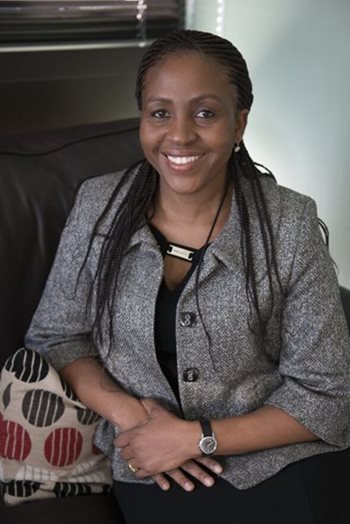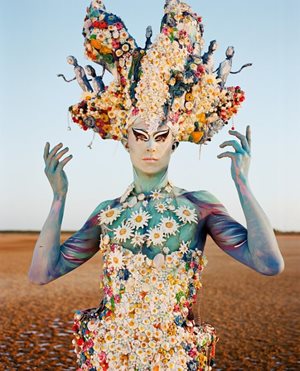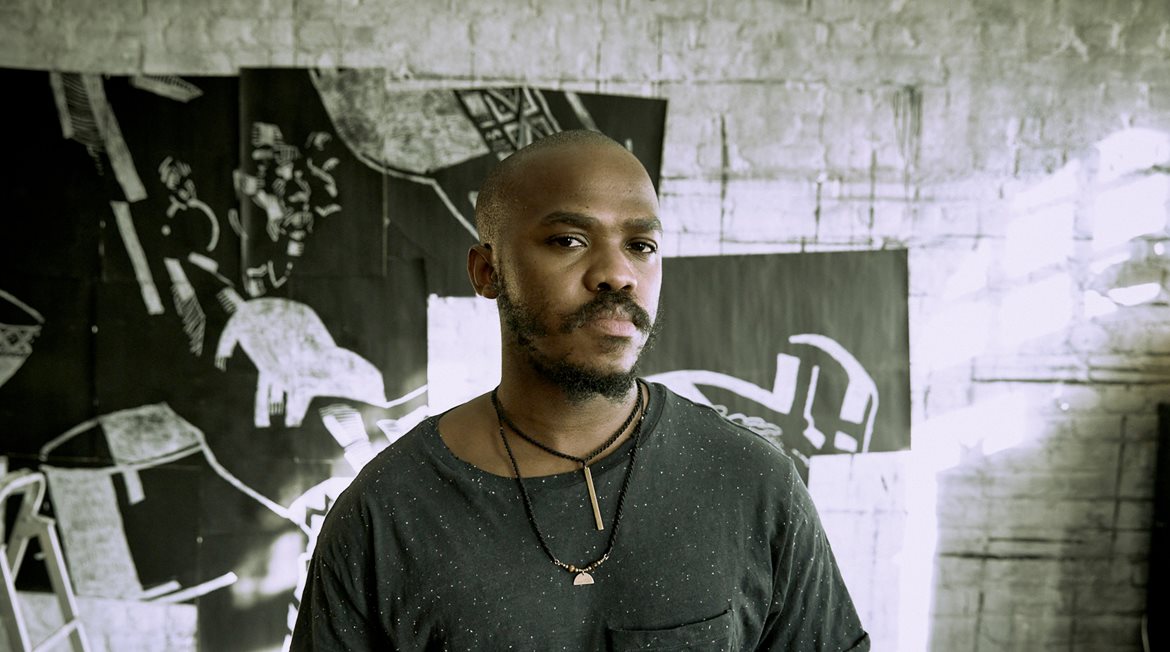A woman for all seasons
Dr Muki Moeng, Deputy Vice-Chancellor: Learning and Teaching is Nelson Mandela University’s most senior alumnus. A true servant leader, her love of education and compassion for humanity are a powerful combination – and her story is one of unparalleled achievement against all odds.
 An inspiring leader who chose determination over defeat
An inspiring leader who chose determination over defeat
By Beth Cooper Howell
Young Muki’s first teaching tools were an old car bonnet and a piece of charcoal.
After class, to mitigate the effects of disrupted education during the height of apartheid, the Graaff-Reinet teenager started study groups, helping friends to revise their schoolwork.
At 15, the outspoken Congress of South African Students (COSAS) member spent two months in jail. During the turbulent 1980s, many student activists missed class – she and her peers repeated Grade 8 three times.
Ironically, the architects of black education failed to break her spirit. Instead, they achieved the opposite.
Dr Muki Moeng, Deputy Vice-Chancellor: Learning and Teaching at Nelson Mandela University, holds a Doctorate in Education and decades of dedication to a love of learning.
Years later, she would beat the odds again, surviving breast cancer following a shock diagnosis in March 2020.
But, like her mentor mother, a domestic worker-turned-entrepreneur, she’s always dusted herself off, choosing determination over defeat.
Cracking the code for Tangible success
The Tangible Africa team at Nelson Mandela University in South Africa is a small group of passionate people working to change the narrative for careers in Science, Technology, Engineering and Mathematics (STEM).
To date, more than 100 000 children on two continents have been exposed to Tangible’s coding outreach, and more than R80 million has been raised for bursaries to enable them to study after school. Tangible is an engagement project of the Leva Foundation, a non-profit organisation, in partnership with Nelson Mandela University, with AWS in Communities its largest sponsor.
HIGH FIVE: Professor Jean Greyling congratulates a youngster during a coding activity; SUCCESS STORY: Professor Jean Greyling with Nelson Mandela University BSc Computer Science student Culumanco Komanisi, who was introduced to TANKS in Grade 7
Its founder, Professor Jean Greyling, is an unassuming academic, deliberate in choosing “we” over “I” in interviews, and quick to name colleagues and students, present and past, for their contribution.
The head of the Department of Computer Science at Nelson Mandela University in Gqeberha says it has not been an easy journey.
How to win friends and influence people
 Whether it is Threads or X, Insta or Facebook, TikTok or YouTube, Nelson Mandela University students and graduates are tapping into social media to carve their niche as influencers in a digital world.
Whether it is Threads or X, Insta or Facebook, TikTok or YouTube, Nelson Mandela University students and graduates are tapping into social media to carve their niche as influencers in a digital world.
“Influencer” brings to mind a celeb with a massive following on social media, holding sway over a legion of fans. Someone who, due to their pervasive potential impact, is a pot of advertising gold.
By Gillian McAinsh
The global influencer market is a $13.8-billion global industry and brands pay handsomely to an influencer for dropping a mention on their socials. Bear in mind however, that only a handful – think Kylie Jenner or Cristiano Ronaldo – rake in $1-million for a post.
That said, even micro-influencers (under 50 000 followers), and nano-influencers (3 000 to 5 000 followers) can reel in a pay cheque or, at the very least, free merchandise. To retain trust, they generally will flag a paid post as #sponsored content.
Rates of pay vary, with as little as R200 per post from a new kid and zooming up to mega-money for a mega-influencer. Engagement, star-power and access to a niche audience are all factors.
And, importantly, to retain trust, they generally will hashtag a paid post as #sponsored content.
Thetha profiles a few of the Gen Z tastemakers and trendsetters who hold sway online.
Reintroducing songs in the ǀXam language
Nelson Mandela University’s professor in music Alethea de Villiers together with linguistics professor Menán du Plessis, from the University of Stellenbosch, recently published an article on songs incorporated into |Xam stories.
Professors Alethea de Villiers and Menán du Plessis; the book with the folktales; and the historic music bow photographed by Gavin Copenhall.
These stories were collected by Wilhelm Bleek and Lucy Lloyd from their ǀXam-speaking consultants in the late 19th century.
The article, “Historically informed performance: songs embedded in |Xam stories” was published in the journal, Ethnomusicology Forum and the research was made possible through ISME-SEMPRE funding.
Prof Du Plessis is a linguist in the field of comparative African languages, with a particular focus on diverse ‘Khoisan’ languages and currently compiling a grammar book and dictionary of the ǀXam language.
Eastern Cape artist and Mandela Uni alumnus makes an international mark
When Gqeberha artist Pola Maneli posted his work on Instagram, he had no idea it would lead to a commission for an international magazine cover, nor to a sale to an Oscar-winning movie director.

Maneli, 33, who graduated with his MA Fine Art from Nelson Mandela University in 2020, says the experience has been “wild, wild, wild”.
The buzz started when the New Yorker magazine commissioned him for its annual Martin Luther King edition cover in January 2023.
The United States honours the life of the late civil rights activist on 16 January every year as Dr Martin Luther King Day.
The magazine asked Maneli to design its coveted cover slot after having previously used his illustration skills.
A New Life in the Netherlands
BCom (Logistics & Transport Economics) alumna Almarize Kleu from Gqeberha graduated in 2020 and moved to the Netherlands a year ago at the age of 23. It’s been the adventure of a lifetime.
Vondelpark, Amsterdam, Ghent, Belgium, and the trees of Stadswandelpark, in Eindhoven – a park Almarize Kleu visits almost daily.
Mandela Uni graduate feels at home in foreign country thanks to South African expats
By Heather Dugmore
“Before moving to Eindhoven in the Netherlands on 15 July 2022, the only time I’d been outside of South Africa was a trip to Mozambique, so it was a huge move for me,” says Almarize, who applied for and was offered a position as a supply chain engineer at Royal Philips International, which has its headquarters in Eindhoven.
The first three months were the hardest, as she was part of a team that worked only in Dutch. “My Afrikaans helped a bit and over the course of a year I learnt Dutch, and I now fluently work in it. What is so surprising is how quickly we learn a new language by speaking it every day.”